 |
|
| |
| Pakistan: Floods - July 2022 |
| |
As of 25 July, the National Disaster Management Authority (NDMA) reported that the floods have resulted in 312 deaths (including 121 children and 56 women) Families forced to live in the open and rely on emergency food.
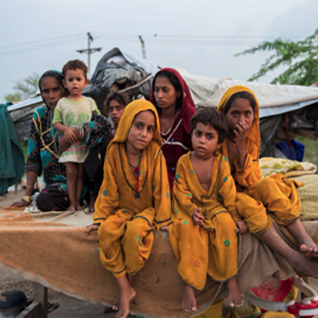 According to the National Disaster Management Authority (NDMA), as of 18 July, up to 238 fatalities have been reported across four provinces, most of them in Balochistan (75 fatalities), Punjab (55), and Sindh (48), and 187 individuals have been injured. Almost 3,400 houses have been damaged, as well as 22 bridges and 11.5 km of roads. The provincial disaster management authority in Balochistan has declared state of emergency in the wake of flash floods and heavy rains in Quetta and Pishin districts. According to initial assessments at least 150,000 people require humanitarian assistance, 30,000 people have been severely affected in Balochistan, and 400 families have been displaced. According to the National Disaster Management Authority (NDMA), as of 18 July, up to 238 fatalities have been reported across four provinces, most of them in Balochistan (75 fatalities), Punjab (55), and Sindh (48), and 187 individuals have been injured. Almost 3,400 houses have been damaged, as well as 22 bridges and 11.5 km of roads. The provincial disaster management authority in Balochistan has declared state of emergency in the wake of flash floods and heavy rains in Quetta and Pishin districts. According to initial assessments at least 150,000 people require humanitarian assistance, 30,000 people have been severely affected in Balochistan, and 400 families have been displaced.
Pakistan has received 60% of total normal monsoon rainfall in just three weeks since the start of the monsoon season. Heavy rains have resulted in urban and flash floods, landslides, and Glacial Lake Outburst Floods (GLOF) across Pakistan, particularly affecting Balochistan, Khyber Pakhtunkhwa, and Sindh Provinces. As of 25 July, the National Disaster Management Authority (NDMA) reported that the floods have resulted in 312 deaths (including 121 children and 56 women) and some 300 people have been injured since 1 July. More than 10,000 households have been affected, of which 60% are in Balochistan. More than 5,000 houses have been partially damaged and another 3,200 houses have been fully damaged. In addition, around 800 schools (600 in Balochistan alone), 50 bridges and 616 km of road sections have been affected. According to initial assessments in Balochistan, at least 150,000 people require humanitarian assistance and while 30,000 people have been severely affected and 400 families have been displaced. The Provincial Disaster Management Authority had declared 18 out of a total of 26 districts in Balochistan as calamity-hit areas.
According to the National Disaster Management Authority (NDMA), as of 28 July, 357 people died across seven provinces, most of them in Balochistan (106 fatalities), more than 400 sustained injuries, and approximately 23,800 houses have been damaged. Warnings for floods and flash floods have been issued for urban areas in northern Pakistan, including the cities of Islamabad and Peshawar. |
| |
|
|
| Pakistan Fully Committed To Combat Human Trafficking: President Alvi |
| |
World Day against Trafficking in Persons was observed annually on July 30 to raise awareness regarding the plight of victims of human trafficking and to promote and protect their rights. The day was observed to bring attention to a crime that left a lasting toll on human lives and society as a whole. It was one of the most serious human rights violations that brought high profits to traffickers through the exploitation of human beings 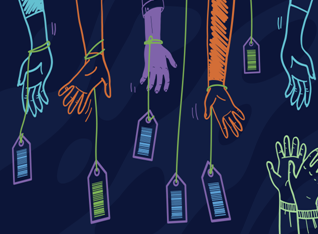 by illegal means such as force, fraud or deception. by illegal means such as force, fraud or deception.
Dr Alvi said that Pakistan had embarked upon stringent anti-trafficking measures to enforce legal frameworks in line with international standards.
“Pakistan has enacted the Trafficking in Person Act, 2018 to prevent and combat trafficking in persons, especially women and children. This law prescribed imprisonment of up to ten years for the perpetrators of such illegal acts,” the president said.
The National Coordination Committee on Human Trafficking had been constituted under the chair of the Minister for Interior. The committee was responsible for steering national efforts in the fight against all forms of human trafficking, including bonded labour and sex trafficking. All relevant departments at the provincial level, including Social Welfare, Labour, Police, Child Protection and NGOs were made part of provincial and district anti-human trafficking committees for close coordination to effectively identify and protect victims of human trafficking.
According to the president, the Federal Investigation Agency (FIA), in collaboration with the United Nations Office on Drugs and Crime, had prepared National Action Plan to Combat Human Trafficking and Migrant Smuggling (2021-2025). The action plan highlighted the roles of different stakeholders and provides a holistic framework for the national response.
“I would take this opportunity to extend my appreciation and acknowledgement to the federal and provincial governments and all other relevant stakeholders who came together to fight this crime,” he said.
(Sparc Press release on World Day against Trafficking in Persons)
https://onlineindus.com/english/World-day-against-Trafficking-in-Person...this-menace-has-engulfed-our-future-Generations-mercilessly./45908
|
|
| |
|
|
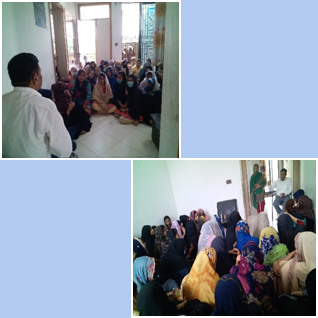 |
|
| |
| Sensitization Session with Girls Inspire Students on GBV |
| |
GBV exists in our society in the form of, Child Marriage, Female genital mutilation, Honor Killing, Trafficking for sex or slavery, Intimate partner violence, Physical punishment and sexual & emotional violence. Girls & women often experience violence at homes, from physical punishment to sexual, emotional or psychological violence. 40 Students were sensitized about Gender Based Violence, Laws and Implementation strategies. |
| |
|
|
| |
| |
| SPARC calls out the need to impose Health Levy on Tobacco Products |
| |
| Society for Protection of Rights of the Child (SPARC) shared a press release comprising messages from renowned health experts to recommend the government to implement health levy on tobacco products, a key public health decision which has been pending since June 2019. |
|
|
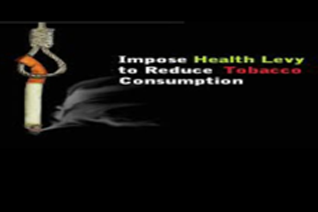 |
|
|
| |
| New global alliance launched to end AIDS in children by 2030 |
| |
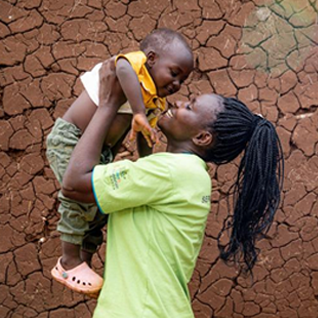 Globally, only half (52%) of children living with HIV are on life-saving treatment, far behind adults where three quarters (76%) are receiving antiretroviral, according to the data that has just been released in the UNAIDS Global AIDS Update 2022. Concerned by the stalling of progress for children, and the widening gap between children and adults, UNAIDS, UNICEF, WHO and partners have brought together a global alliance to ensure that no child living with HIV is denied treatment by the end of the decade and to prevent new infant HIV infections. Globally, only half (52%) of children living with HIV are on life-saving treatment, far behind adults where three quarters (76%) are receiving antiretroviral, according to the data that has just been released in the UNAIDS Global AIDS Update 2022. Concerned by the stalling of progress for children, and the widening gap between children and adults, UNAIDS, UNICEF, WHO and partners have brought together a global alliance to ensure that no child living with HIV is denied treatment by the end of the decade and to prevent new infant HIV infections.
Consultations by the alliance have identified four pillars for collective action:
- Closing the treatment gap for pregnant and breastfeeding adolescent girls and women living with HIV and optimizing continuity of treatment;
- Preventing and detecting new HIV infections among pregnant and breastfeeding adolescent girls and women;
- Accessible testing, optimized treatment, and comprehensive care for infants, children, and adolescents exposed to and living with HIV; and
- Addressing rights, gender equality, and the social and structural barriers that hinder access to services.
The alliance will run for the next eight years until 2030, aiming to fix one of the most glaring disparities in the AIDS response. Alliance members are united in the assessment that the challenge is surmountable through partnership. |
| |
| Breastfeeding: 'More critical than ever' start to life |
| |
 Tedros Adhanom Ghebreyesus and UNICEF chief Catherine Russell, issued a joint statement on Monday, marking the start of World Breastfeeding Week, and pointed out that global crises, supply chain shocks and insecurity threaten the health and nutrition of millions of babies and children like never before. Tedros Adhanom Ghebreyesus and UNICEF chief Catherine Russell, issued a joint statement on Monday, marking the start of World Breastfeeding Week, and pointed out that global crises, supply chain shocks and insecurity threaten the health and nutrition of millions of babies and children like never before.
This World Breastfeeding Week, under its theme Step up for breastfeeding: Educate and Support, UNICEF and WHO are calling on governments to allocate increased resources to protect, promote, and support breastfeeding policies and programmes, especially for the most vulnerable families living in emergency settings.
According to the UN, fewer than half of all newborns are breastfed in the first hour of life, leaving them more vulnerable to disease and death. And only 44 per cent of infants are exclusively breastfed in the first six months of life, short of the WHO run World Health Assembly’s target, of 50 per cent by 2025.
“Protecting, promoting, and supporting breastfeeding is more important than ever, not just for protecting our planet as the ultimate natural, sustainable, first food system, but also for the survival, growth, and development of millions of infants”, said Tedros and Ms. Russell.
The agency chiefs said that to increase the numbers of babies being breastfed worldwide, governments, donors, civil society, and the private sector need to focus on four key areas.
- Prioritizing investing in breastfeeding support policies and programmes, especially in fragile and food insecure situations.
- Equip health and nutrition workers in facilities and communities with the skills they need to provide quality counseling and practical support to mothers.
- Protect caregivers and healthcare workers from the unethical marketing influence of the baby formula industry by fully adopting and implementing the International Code of Marketing of Breast-Milk Substitues, including in humanitarian settings.
- Implement family-friendly public health policies and initiatives that provide mothers with the time, space, and support they need to breastfeed.
|
|
|
|
|
|
|
|
| |
| |
| |
Our mailing address is: |
Follow SPARC on social media |
| |
House # 98, Street # 05, MPCHS, E-11/1, Islamabad
info@sparcpk.org | Tel # 051-2163011 |
|
|
|
|
|
| |
|
